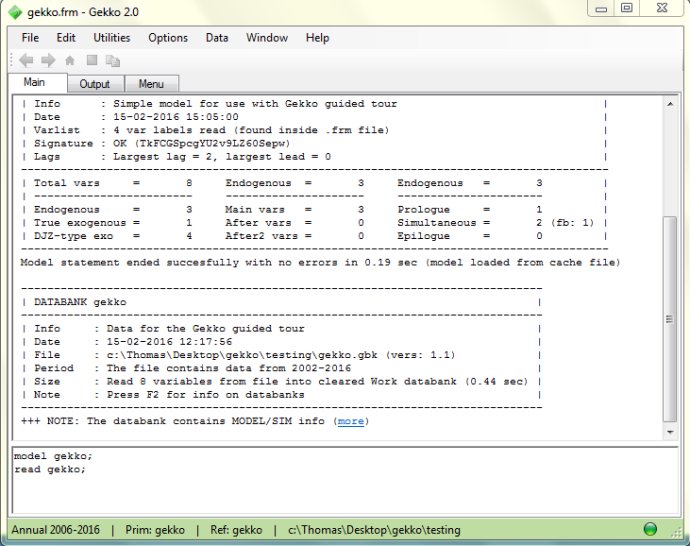Gekko is a cost-free software solution suited for examining and resolving vast economic models. This time-series orientated tool has been utilized by Danish universities, interest associations, banks and ministries since 2009.

Gekko offers various features that make it stand out from other software packages. Its flexible data banks cater for annual, quarters, and months, while dynamically loaded and compiled models ensure maximum efficiency of use. The inclusion of state-of-the-art Gauss and Newton solvers, along with ordering and feedback logic, guarantees a high level of accuracy in model simulations. Gekko also has the Fair-Taylor solver and is capable of any number of simultaneous goals and means.
The software package offers a failsafe mode for simulation, an in-built equation browser with a variable list, as well as the decomposition of changes in equations. Gekko handles missing values consistently with double precision and allows expressions anywhere, enabling users to print and plot with ease. Gekko also has a strict language syntax with loops, conditionals, etc., making it an ideal software package for anyone looking to analyze large-scale economic models.
Gekko features graphics through embedded gnuplot and has a tabling and menu system that outputs in text, html, or Excel. Additionally, it is capable of reading and writing from Excel or other spreadsheets. Gekko has won the trust of leading institutions such as Ministry of Finance, Ministry for Economic Affairs, Danish Energy Agency, Technical University of Denmark, universities, and more.
Installation of Gekko is made easy with an all-inclusive Windows installer or a manual installation process using a zip-file with gekko.exe, making it stress-free to use. Gekko can be accessed via open source and is free of charge, with no licenses required for the compilers used. Everything used is C#/.NET (+ gnuplot and 7zip), which makes it easy to use for anyone looking to analyze large-scale economic models.
Version 1.6:
Much faster model loading and databank reading.
Much faster simulation.
Forward-looking models.
Many databanks can be open at the same time.
Better loops, conditionals etc.
Better menus, tables, print, etc.
Much better user help system.
Plus a lot of other changes and improvements.